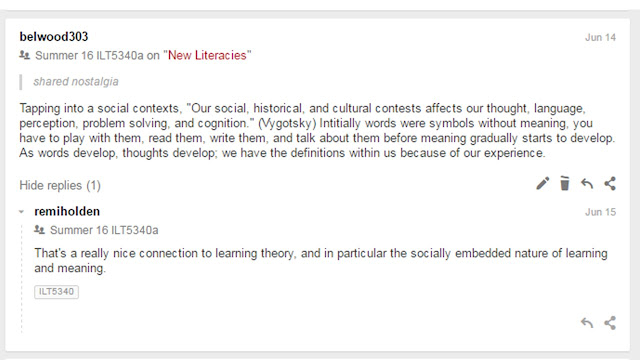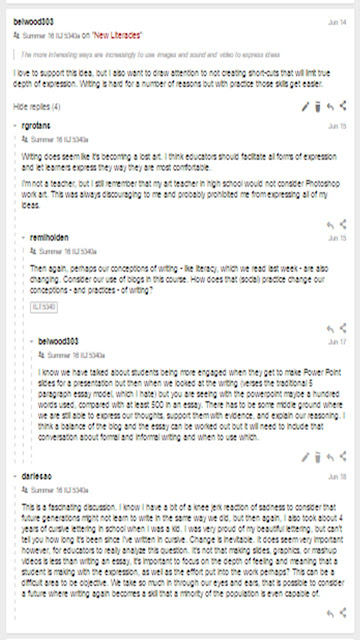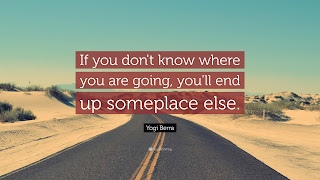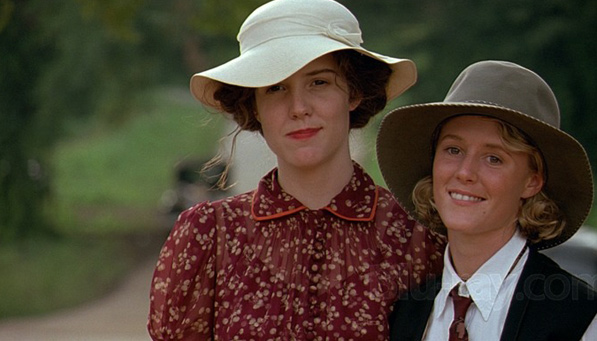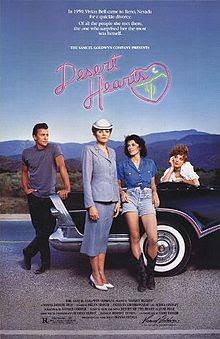The painful process of remembering the artist buried within
— Bea Elwood (@belwood303) July 6, 2016Before the painful experience of failure or negative feedback sours a young child we are all artists and writers and storytellers. There is nothing we fear, nothing we cannot attempt. But those experiences of failure shape how we come to identify ourselves as adults.
Are you an artist? Or have you packed away your colored pencils because you hit a wall in perspective and felt your drawings weren't "good enough". Do you have notebooks full of wonderful adventures and characters you have created but who have not made it to a final draft; did you put away your story because it was too painful to have someone critic your brain child or did you get a couple of rejection letters first?
Have you put enough space and distance between that young novice and your current self that you feel safe examining what happened?
Somewhere buried deep within me is this identity of being a writer, a storyteller who puts their thoughts into words on the page. I moved from a small Colorado prairie community of 500 people to Los Angeles when I was 18 because I wanted to write for the movies. I lived there for four years, shelving books and slinging coffee at the Borders Books and Music store in Valencia.
And then I had to move back "home".
That was one failure, followed by another, and then another. My identity as a writer became so distorted that I eventually felt ashamed to even admit I had once daydreamed of winning the Academy Award for Best Original Screenplay. Dozens of stories were culled.
But then, well, the library once again saved me.
I went to my local library and asked if I could shoot footage of their sorting machine to make this video. And discovered that somewhere in the process of this class I started to feel like a storyteller again.
Not without its own birthing pains.
Even this post has been a frustration of techie issues. Tried a new program (Storify) and spent long hours trying to upload pictures (first you make the pictures then discover you can't figure out how to upload them, then you try posting them to facebook or twitter) only to discover that for whatever reason it's not saving your progress. (Even now the tab is still open and it appears to be stuck reconnecting) So more time spent copying and pasting over to Blogger, and still even then you lose things like Twitter comments (screenshots of Storify into Powerpoint, crop, save as JPG, upload - doubtless there are faster, smarter ways but I don't know them) because now you can't find them again on your twitter feed.
When do you give up?
Well, that's the thing I've discovered about goal setting. All those wonderful books at the library. The ones about Flow and intrinsic motivation. Setting a goal is more than just declaring it (although you may recall from my earlier posting that declaring your goal and getting a "good for you" can actually prevent you from reaching your goal). New Year's Resolutions often fail because there is no plan of attack, there are just these things like "get out of debt" or "be kind" or "lose 50 pounds". But mostly goals fail because we aren't prepared to overcome setbacks.
My theme for this course was goal setting but as I worked on my assignments I found I needed to remember those aspects of goal setting that help a person keep working even when they experience failure or set backs. The key to really being successful with your goals of course is the level of reflection you do when you have reach a milestone. The end of this course is only a milestone, it is not a finish line. The things I was able to start in these last eight weeks with continue to grow over the years as I continue to evaluate and set new goals. But first, let's talk about what went right, what got better and where it is all taking me from here.
Art For Words - Using Fewer than 140 Characters to Tell a Story
This is where I started, and even though I still use PowerPoint to do my PhotOshopping I feel I can see the progress made. As a writing teacher I know how important it is to have activities in which students actually write but visual messages are amazing (Art is a Univeral Language that Does Not need to be Translated).So... how does one photishop?— Bea Elwood (@belwood303) May 29, 2016
And it felt safer for me to explore these themes then straight up writing assignments (more on that in a bit). My identity as a storyteller grew in terms of using Photoshop, and I was most proud of the final few projects.
— Bea Elwood (@belwood303) June 5, 2016
Hey @dusenberyart_k8 look at what makes me happy #ds106 #ilt5340 @ds106dc #tdc1612 pic.twitter.com/X9Ej8uF7O0— Bea Elwood (@belwood303) June 7, 2016
I don't play it safe when I try something. I always try for something that requires a bit of risk taking on my part, even if that risk is just to expose a little bit more of myself than I might feel comfortable with. The interesting thing with looking back over these projects is to remember how nervous and overwhelming they felt at first. Like at any moment I was going to be found out and discovered as an impostor or fake. I guess that says alot about how I don't feel like I belong but that's probably a discussion for therapy and not necessarily for my final reflection.Getting my create on, now to read up on what the other peeps are up to #ds106 #ilt5340 VisualAssignments1921 pic.twitter.com/SYBOX0jymr— Bea Elwood (@belwood303) June 9, 2016
I remember seeing this daily create and going through my books to see if inspiration would strike. And it did! I knew the moment I picked up the Patchwork Girl and saw that simple doll on the cover what it would be if it was printed today. The over sexualized messages young women recieve today completely blows me away. Getting the materials together to recreate this cover didn't take very long but teaching myself to use new tools in PowerPoint sure did. I had never removed a background before and it was still too tricky to remove the original image from the cover (her hands can still be seen on the C and K) but I was so very pleased with the final product just the same.
Updated bookcover, yes let's talk about the objectification of the female form and sexualizing young women #tdc1618 pic.twitter.com/399temlXFu— Bea Elwood (@belwood303) June 13, 2016
This summer's favorite is sure to be FAIRY HARD with Bruce Willis & the Rock #ilt5340 #ds106 https://t.co/FqenNyUT8s pic.twitter.com/INKhE8n7Le— Bea Elwood (@belwood303) July 7, 2016
By the time I got to these next few assignments removing a background and flipping images had become more "natural" for me. I was especially proud of the proportions for the FAIRY HARD movie poster and how close my "This is Not a Coffee" resembled Rene Magritte's "This is not a Pipe". Would I say I had become a PhotoShopping Master? No. But I was a PowerPoint PhotoShopping Novice with enough confidence to feel they could take on any project and do well.
— Bea Elwood (@belwood303) July 12, 2016
My final Photoshop project for this class involved so many elements that I truly felt like a creator and not just a manipulator. Plus who doesn't love a caped Bold B!
Putting a little spin on an old saying - pretty happy w my picture making skills #ilt5340 #ds106 @ds106dc #tdc1656 pic.twitter.com/ksRZztxenw
— Bea Elwood (@belwood303) July 22, 2016
Putting a little spin on an old saying - pretty happy w my picture making skills #ilt5340 #ds106 @ds106dc #tdc1656 pic.twitter.com/ksRZztxenw
— Bea Elwood (@belwood303) July 22, 2016Sounds About Right - Auditory Elements are My Achilles Heel
Adding soundtracks to my video project on YouTube proved very frustrating but I'm glad I've discovered SoundCloud. (And Incredibox even though I didn't find time to play on it). I honestly don't know what to do with it but I hope to introduce some students to it and see what they create there. I have a hard time with phoentic awareness activities because of an inner ear issue that makes distenguishing those subtle difference a struggle. A reason I struggle with pronounciation and singing and spelling. And I avoided working on those things because of the deficit which then in turn means those skills weren't developed.
But I love listening to music and again I am willing to look at an assignment and say to hell with it let me try it. So even though I didn't do a lot of Auditory assignments for this class the ones I did do I am extreemly proud of. I don't have plans to change careers anytime soon but I am looking forward to discovering more ways to develop these skills slowly and thoughtfully in the future.
And honestly, students who are gifted in their area should be the ones who are encouraged to meld writing with sound and see what they create. I'm not the writing teacher that gets hung up on spelling and grammer. I teach that those things are increadible important, but we learn them by reading great writing more than with skill and drill activities.
And honestly, students who are gifted in their area should be the ones who are encouraged to meld writing with sound and see what they create. I'm not the writing teacher that gets hung up on spelling and grammer. I teach that those things are increadible important, but we learn them by reading great writing more than with skill and drill activities.
(Sadly, because of my poor techie skills, screenshots have been my method of trying to capture some of our conversations from this class and this one is just really poor quality).
Reading and Writing - My Bread and Butter
Totally excited to have discovered hypothesis. This is a great way to read and discuss material. I don't have enough technology in the classroom to really support using it but maybe for some assignments I can pull in the laptop cart and get kids on it.
The DS 106 Assignment Bank was another rich resource of writing assignments and ideas. The Choose Your Own Adventure stories were a big hit with some of my relunctent readers and I dsicovered Inklewriter which allows students to create their own Choose Your Own Adventure stories (my brain has been brewing how we as a class could all create a story together using this program so I'll let you know how that works out).
Discovered inklewriter! Check out my 1st choose your own adventure story https://t.co/SCpoT6vuJ4 #ilt5340 #ds106 pic.twitter.com/Kt6FjJxVgB— Bea Elwood (@belwood303) July 13, 2016
As I mentioned my identity as a writer has been damaged by some pretty serious setbacks and failures. And as we humans know it is always easier to remember the failures than the successes. One of the goal setting strategies for reflection requires that you make a list of those things that went right so that you have evidence of all the things that did go right. But it's like getting back on a bike when you have fallen, the pain paralyzes you and you have to learn to trust yourself again.
You may recall my talking about this book earlier. But I think it bares repeating that we are discovering so much about how the brain works because we literally have only been able to observe it working since the 1970s (MRi machines and such). Before that you had those guys with the lab rats and dogs being trained to respond to bells and whisles but I digress. The point is that trauma effects different people differently. Our brains are amazing machines but they can also be fairly simplistic too, the brain doesn't actually know the difference between a real threat and a vivid memory (or imagining) of a threatening situation. It's part of the reason why simulations help train people for the real emergency, but it's also part of the reason why PTSD is such a huge issue. My own, non-life threatening experiences as a failed writer made it harder to try writing again because it carries with it the weight of all those experiences and you think as you write that you will fail before you even begin. Resilience is needed then to come back from failures.
And reflecting on what went right helps replace those feelings of doubt when they do come up. So, in addition to using the DS 106 Assignment Bank with students, I can also use it to build up my confidence again as a writer too. Fun, short activities like the Daily Creates can help struggling writers with short prompts that have them writing before they know what hit them.
A Fun little writing assignment from the Daily Create #ilt5340 #ds106 @ds106dc #tdc1626 pic.twitter.com/RcLv0fWGYL— Bea Elwood (@belwood303) June 23, 2016
And labeling the assignment "Design" for example can also produce a lot of writing and connection too, while sidestepping emotions connected to writing. I was pleasently surprised to go over my posts and tweets and discover some really good writing gems.
oops, forgot my picture (is there an edit option?) Design Assignment https://t.co/FqenNyUT8s #ilt5340 #ds106 pic.twitter.com/kQsmQMKTxc— Bea Elwood (@belwood303) July 5, 2016
This summer I have also had time to reflect on my journal writing, which is something I use in class to try to inspire students to make writing more personal. This summer I completed my 14th journal and reflected on how that process has really started to take shape. I've been working on them since 2007 but in this last year they have really started to come together. Examples of how longevity and resilience are key ingredients in creating your dreams. Plus, it was nice to get some feedback from total strangers on how they look.

Students learn from doing. They also need modeling to see things done correctly which is one of the things I think I will be stronger doing for them going forward. I've modeled writing for them before but I'm feeling more confident now, and with the different assignments from DS 106 and the other teaching resources online (which I also feel more confident exploring) I think we will have lots to experiement with in the future.

Not to mention the various ways we can incorporate fanfiction into writing assignments too!
So Where Do We Go From Here
There are of course fun "bucket list" goals that once they are completed we move on from but developing those life long learning habits and skills needed to pursue bigger goals can be harder. One of the reasons is because struggle feels so uncomfortable and we'd rather avoid it. But a little willingness to not only Learn, but also Unlearn and Relearn can open up discoveries never dreamed of before. Never before has a class really pushed me to live this.
I also found it interesting to look at some of the statistics that my blogging created. Of course I'm not sure how someone in France even found my blog (or for that matter how to find Mauritius on a map) but this is an example of how the World Wide Web really does connect the world together. A very poient experience of this class was the reading of the Riverbend blog. Our course readings had referenced it as being this powerful connection to the war in Iraq but of course this was over a decade ago so I looked to see if she was still blogging. One post, three years ago, was a stark contrast to the positive message in our course readings. And yet, there too is the power of archieving messages like blogs. Libraries have to make room on their shelves for current materials although there are warehouses for books that are sometimes needed for reference, but for the most part older books are weeded from collections. The internet as far as I've been lead to believe does not have issues with storage so if you never delete it in theory it is available forever. Although I'm not sure how all of this will look and feel to me in the future, it's there perculating in my mind. The thing is that in some fashion affinity spaces will make their way into the classroom. The Global Classroom will become more common, and hopefully in the process we can increase empathy and awareness on a larger scale.
My more immidiate goals and uses for affinity spaces in the classroom will probably focus around fanfiction, blogging and self-publishing but because of this class I will have more direction to offer students who are more adventerous or advanced than myself.
I was also inspired by affinity spaces to try out Donors Choose, and happy to say my first project was fully funded! I'm slowly starting to see how one could use all these different social media sites to connect with strangers who are looking to connect. There is a wealth of sites I have not tapped into because I find this whole Internet thing overwhelming but just like with my Photoshopping, once I actually started setting expectations (goals) for myself I slowly started to feel more comfortable.
I'm still going to move at the speed of a turtle because I'm old enough to understand that fast isn't always better - Haste really does make Waste - but also because as a teacher the one student I have really gotten to know is myself. I may have cried at times during this class, may even have broken down yesterday afternoon in frustration, but I trusted myself to be gentle yet firm. I had a goal. Finish this class. Setbacks and frustrations were going to happen, some of them you could perdict but the ones that really get you are the ones that blindside you. And I've been fortunate enough to have gained the experience of evaluating what has worked, and what hasn't worked, and what to do when the Internet crashes and you find yourself trying to meet a deadline.I love the Colorado flag & this is a very free interpretation of this assignment #tdc1623 @ds106dc #ilt5340 pic.twitter.com/et7qg1mhAm— Bea Elwood (@belwood303) June 25, 2016

